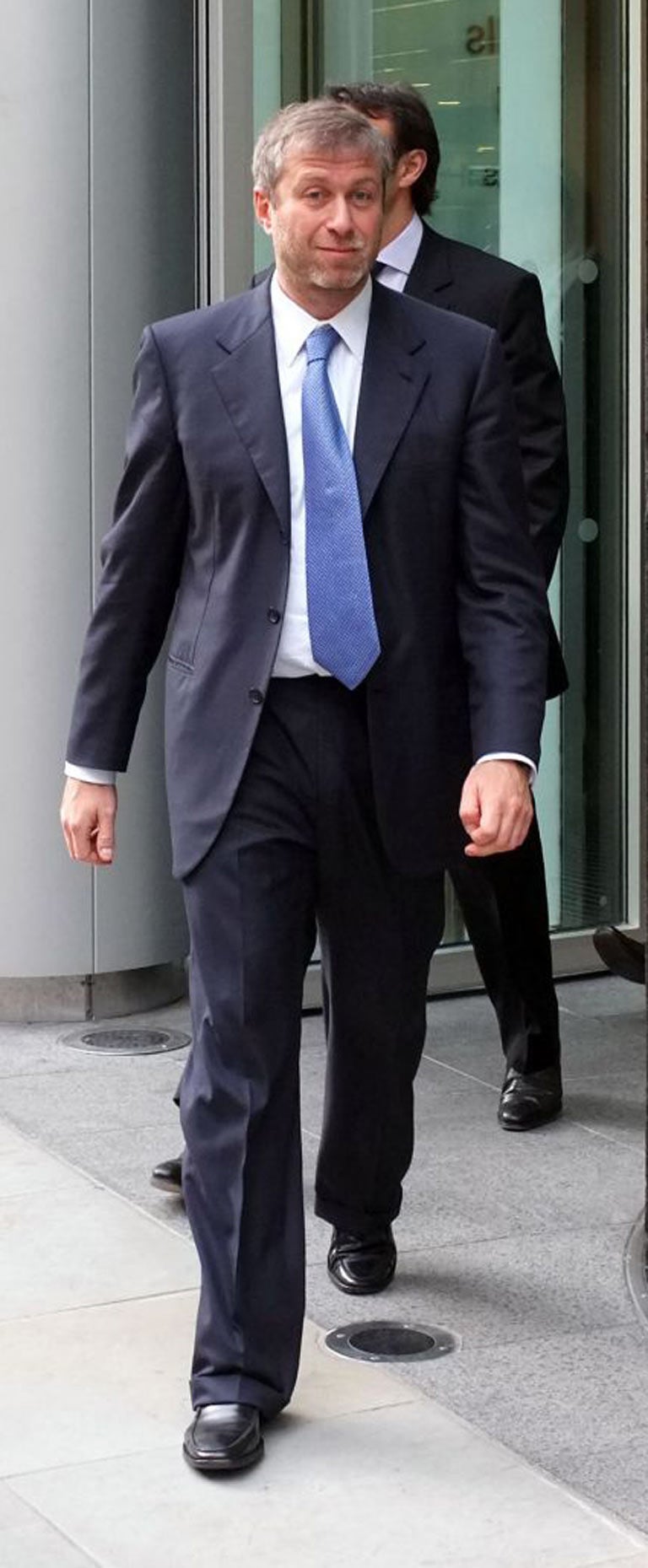Abramovich's 'opaque' route to riches revealed
Oligarch received tax breaks for hiring disabled people and bought back oil from his own firms

Your support helps us to tell the story
From reproductive rights to climate change to Big Tech, The Independent is on the ground when the story is developing. Whether it's investigating the financials of Elon Musk's pro-Trump PAC or producing our latest documentary, 'The A Word', which shines a light on the American women fighting for reproductive rights, we know how important it is to parse out the facts from the messaging.
At such a critical moment in US history, we need reporters on the ground. Your donation allows us to keep sending journalists to speak to both sides of the story.
The Independent is trusted by Americans across the entire political spectrum. And unlike many other quality news outlets, we choose not to lock Americans out of our reporting and analysis with paywalls. We believe quality journalism should be available to everyone, paid for by those who can afford it.
Your support makes all the difference.Employing disabled people which would qualify him for tax exemptions, and selling oil between his own companies were business tactics the Chelsea Football Club owner Roman Abramovich was forced to admit to as he faced questions on how he went about transforming himself from a very rich man to an obscenely rich man at the end of the 1990s.
The court heard how Mr Abramovich employed a company called Valmet to set up a "complex and opaque" web of offshore companies and trusts, which he used to remove hundreds of millions of dollars from Sibneft, the oil firm he bought and set up for $100m (£62m) in 1995 with the assistance of Boris Berezovsky, and sold in 2005 for $13bn.
By the time of the sale, Mr Berezovsky and Mr Abramovich had fallen out. Mr Berezovsky is suing Mr Abramovich for what he believes should be his share of the $13bn, after he claims Mr Abramovich forced him to sell his share at a knockdown price.
At the heart of the matter is the controversial practice of "transfer pricing". Mr Berezovsky's lawyer, Laurence Rabinowitz QC, accused Mr Abramovich of selling Sibneft's oil to his own offshore oil trading companies, then buying it back for three times the price.
It is a scheme highly similar to that for which fellow oligarch Mikhail Khodorkovsky was imprisoned late last year, in a case which drew global criticism of the impartiality of the Russian legal system. Vladimir Putin, Russia's Prime Minister, claimed at the time that "a thief must stay in jail".
Meanwhile, Mr Abramovich, with whom Putin maintains a "good working relationship", divides his time between his vast property empire and his fleet of five super-yachts.
The court heard how Mr Abramovich was able to buy crude oil at the Russian price of "between $10 and $10.50 a barrel" and then sell it on at the global market price of $17. He also kept trading companies in Russian States with generous tax regimes, including Chukotka where he served as Governor from 2001 to 2008, and took advantage of government schemes to provide tax relief for companies with a high proportion of registered disabled workers.
"Do you dispute that you established oil trading companies with primarily disabled staff in order to take advantage of certain tax exemptions?" Mr Rabinowitz asked.
"We've done it," he replied. "I don't recall why it was done but these were real people and we paid them salaries."
The arrangements allowed Mr Abramovich to pay 5.5 per cent tax on the profits, rather than 35 per cent. He claimed that "all the money [saved] was going to Chukotka's budget or charitable foundations", which caused an eruption of laughter from a court annexe.
When legislation after the election of President Putin in 2001 made transfer pricing more difficult, Mr Abramovich integrated the trading companies into Sibneft, causing a research report to conclude it was "good news for Sibneft's minority shareholders going forward, despite the annoyance of realising how much they have missed out on in the past".
Mr Abramovich claims Sibneft did not become profit-making until 2001, and so a number of substantial payments made to Mr Berezovsky during this time did not represent the ownership share Mr Berezovsky claims he had, but was in fact "krysha" or protection money, in return for his political influence and physical protection. Mr Berezovsky was crucial in securing the finance needed to buy the companies in 1995. "Compared with Mr Berezovsky... I was a nobody," Mr Abramovich said.
A significant problem is that there is little documentary evidence for the payments that were made. Mr Berezovsky claims one payment of $10m in autumn 1995 was written down as in exchange for cars from his dealership LogoVaz, which Mr Abramovich disputed to much laughter in court. "In 1995, I had a Bentley," Mr Abramovich said. "LogoVaz was not a Bentley dealer."
Mr Abramovich maintained that some of his payments to Mr Berezovsky are documented. "We paid his expenses," he said. "We paid his credit card bills, we paid for his chateau in Southern France – they are all documented."
The case continues.
Roman revelations
* Employed disabled people which gave tax exemptions.
* Accused of engaging in controversial "transfer pricing", involving selling oil to a private company then buying it back for several times the price.
* Was driving a Bentley at 29.
* Admitted: "Compared to Mr Berezovsky, I was a nobody."
* Has received legal advice from Conservative peer Lord Gold, a top litigator.
Join our commenting forum
Join thought-provoking conversations, follow other Independent readers and see their replies
Comments